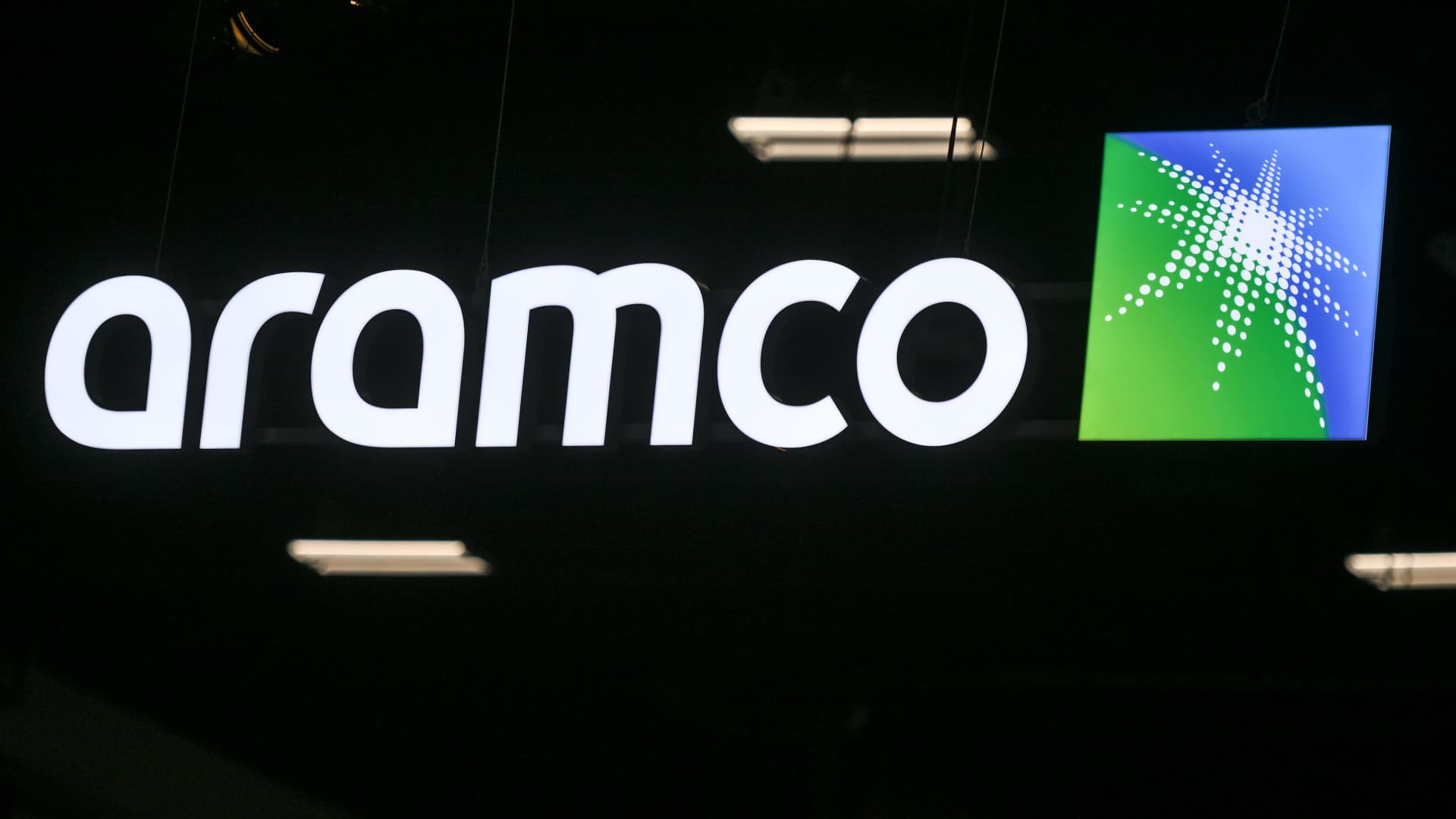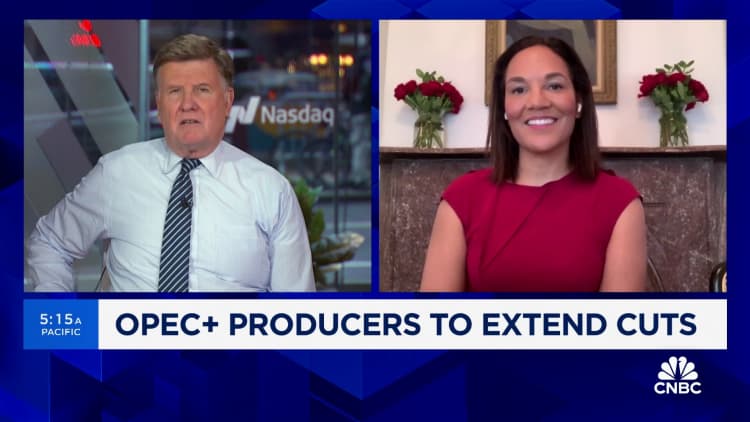Logo of Aramco, officially the Saudi Arabian Oil Group, Saudi petroleum and natural gas company, seen on the second day of the 24th World Petroleum Congress at the Big 4 Building at Stampede Park, on September 18, 2023, in Calgary, Canada.
Artur Widak | Nurphoto | Getty Images
Saudi Arabia’s state oil giant Aramco reported a 25% decline in profit to $121.3 billion in 2023, down from $161.1 billion in 2022, and boosted its mega dividend payout despite “economic headwinds.”
Aramco raised its base dividend for the fourth quarter by 4% to $20.3 billion dollars, and lifted its performance-linked dividend by 9% to $10.8 billion, resulting in a $31 billion dollar payday for the Saudi government and Aramco stakeholders.
Despite the earnings decline, the result still represents Aramco’s second-highest net income on record, far outpacing the profitability of its largest global peers.
“The year-on-year decrease can be attributed to lower crude oil prices and volumes sold, as well as reduced refining and chemicals margins, partially offset by a decrease in production royalties during the year and lower income taxes and zakat,” Aramco said in a statement.
Aramco said total revenue also fell 17% to $440.88 billion, down from $535.19 billion last year. Free cash flow also fell to $101.2 billion in 2023, compared to $148.5 billion in 2022.
“It was a year that saw global oil demand reach record levels despite geopolitical volatility, economic headwinds, and inflationary pressures,” Aramco CEO Amin Nasser told the earnings call on Sunday.
“We expect the global oil market to remain healthy over the remainder of this year, and we expect it to be fairly robust with growth of about 1.5 million barrels,” Nasser added. Saudi Arabia led OPEC+ countries last week in a decision to extend voluntary oil output cuts until the end of June.
Changing Hands
The earnings come after the Saudi government transferred an additional 8% of Aramco shares, worth $164 billion, to Saudi Arabia’s Public Investment Fund (PIF). Yasir Al-Rumayyan is both the chairman of Aramco’s Board of Directors and the governor of the PIF.
The share transfer to PIF is one of the largest transactions Aramco has undertaken since listing, and will allow the PIF to benefit from Aramco’s mega dividend payout policy.
Aramco paid $97.8 billion in dividends in 2023, up 30% from 2022. The full year performance-linked dividend for 2024 is expected to be $43.1 billion alone.
The share transfer “doesn’t change anything,” Aramco Chief Financial Officer Ziad Al-Murshed told the earnings call. “We’re healthy and we have no need to issue new equity,” he said in response to a question about speculation of a secondary or additional public share offering.
PIF already owned 4% of Aramco, and controls Sanabil, a financial investment firm, which owns 4% of Aramco as well. The PIF’s 16% state in Aramco, worth an estimated $328 billion, will strengthen the fund’s financial position and boost its ability to deploy capital to invest on behalf of the Saudi state, which is gradually diversifying its economy away from oil.
The new Aramco stake also pushes PIF closer to achieving its end-2025 target of $1 trillion in assets under management.
More Investment
Aramco confirmed it would halt plans to raise its oil production capacity from 12 million barrels per day to 13 million barrels per day — a move expected to reduce capital investment by approximately $40 billion between 2024 and 2028.
“The recent directive from the government to maintain our Maximum Sustainable Capacity at 12 million barrels per day provides increased flexibility, as well as an opportunity to focus on increasing gas production and growing our liquids-to-chemicals business,” Nasser said.
Aramco’s average hydrocarbon production was 12.8 million barrels of oil equivalent per day in 2023, including 10.7 million barrels per day of total liquids.
Aramco aims to ramp up its investments in other ventures including gas and gas infrastructure. It has a target to increase gas production by more than 60% by 2030, compared to 2021 levels. Its flagship gas investment is the Jaffoura project — the largest gas play in the Middle East — with an estimated 200 trillion standard cubic feet of natural gas.

 Accounting1 week ago
Accounting1 week ago
 Economics1 week ago
Economics1 week ago
 Personal Finance1 week ago
Personal Finance1 week ago
 Accounting1 week ago
Accounting1 week ago
 Finance1 week ago
Finance1 week ago
 Economics1 week ago
Economics1 week ago
 Economics1 week ago
Economics1 week ago
 Economics1 week ago
Economics1 week ago























